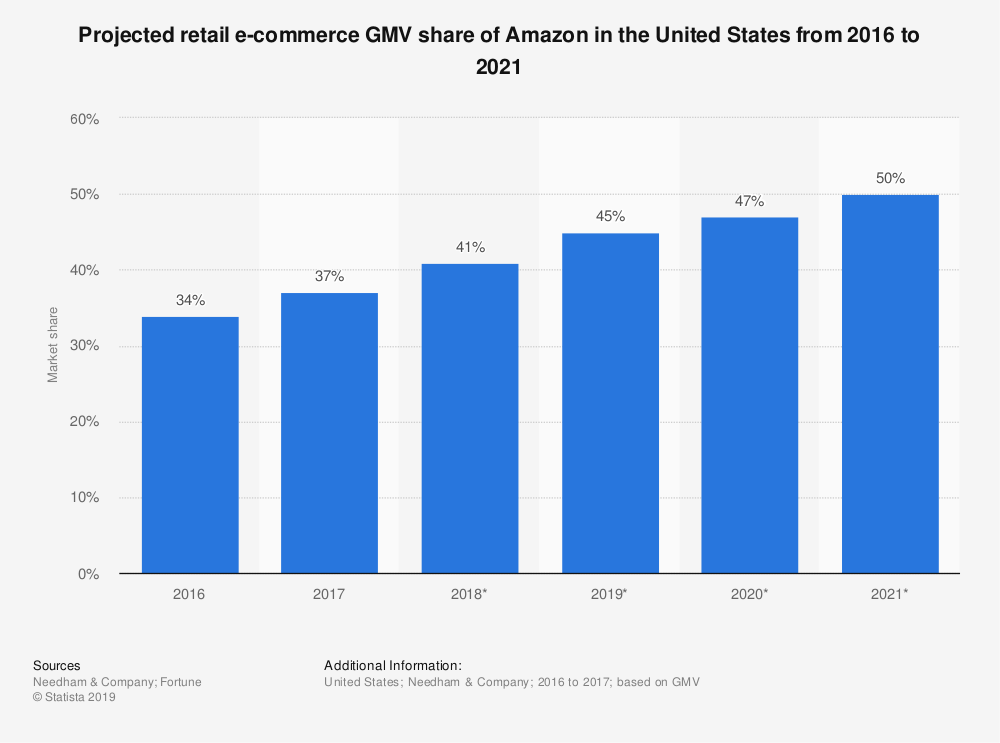

Are marketplaces right for your business? The Pros and Cons
A challenge which many retailers face at different points throughout their journey includes whether to list their products on a marketplace or not, which is a tough decision to make for many reasons, yet is commonly known to have its advantages for doing so.
Having a marketplace strategy is often a large element of many retailers’ sales mix, and contributes in a big way to the online revenue generated by an eCommerce retailer. In this article, we explore the key pros and cons which we often hear from our clients or prospects and aim to explain a well-balanced view on selling via marketplaces.
Most start-up retailers see selling on a marketplace as a fantastic opportunity to get their brand off the ground and introduce their products to potential customers who have not heard of them or who are not brand-conscious.
What is an online marketplace and what are the opportunities
Marketplace websites can be viewed as similar propositions to a department store, where lots of different brands and products are sold.
The biggest marketplace in the world is Amazon, which has a website for almost every country in the world (e.g. Amazon.co.uk for UK customers, Amazon.fr for French customers, Amazon.de for German customers etc). Collectively, these websites generated over $230m in 2018 and are commonly known as a location where you can buy ‘almost’ any product and are therefore generating the largest revenue of any eCommerce retailer in the world.
Second to Amazon, is JD.com (Jingdong) which operates out of Beijing and is rivalled by the third-largest retailer, Alibaba. Both of these websites were started in the late ’90s and have a similar proposition, yet they compete heavily when it comes to their high-tech delivery systems, drones/robot tech and warehousing tech.
Marketplaces dominate the list of the largest eCommerce companies in the world, with eBay, Rakuten, B2W, Etsy and Zalando also all listed.
Within the marketplace space, there are two types of sites – retail and auction. An auction site allows individuals to sell their products directly to others (private sales), but on a retail marketplace, only a business can sell to the consumer (a B2C marketplace) or to other businesses (a B2B marketplace).
Looking at the opportunity and differences between Amazon and eBay from a retailer's point of view, there are several points to consider.
Firstly, Amazon receives 5x more traffic than eBay, therefore your total reach and brand awareness opportunity are much greater on Amazon.
Secondly, and most importantly, the fees involved in selling are vastly different between the two marketplaces. Amazon has different pricing models for direct-selling and FBA (fulfilled-by-Amazon), but on average costs are between 10-20% of the revenue generated and are less complex than eBay’s pricing structures. eBay have three fee types: a listing fee, a store-subscription fee and a fee-per-sale.

Pros for selling via marketplaces
Growing popularity: with Amazon nearly having 50% share of the retail sales market in the US, there is a huge chance that most consumers will either begin or include Amazon in their purchase ‘research’ phase. All marketplaces are growing in market share and this trend will likely continue in the coming years.
Customer reach: gaining visibility of your products and brand is a key reason to host your products on a marketplace, attracting new potential customers without them needing to actively visit your site or search for you.
Trust: the consumer’s trust in the marketplace is given to the brands that sell through it. As a consumer will believe that the marketplace has done due diligence on the business and ensured its legitimacy and quality.
Testing ground: many retailers will use a marketplace as a test bed for new products, product data or brand positioning strategies. The reviews which are generated from new products can then help to further develop a product or refine a proposition before the brand take it to market.
Little upfront investment: the outlay needed to begin selling on a marketplace are incredibly small when compared to setting up a new eCommerce site or selling in brick-and-mortar. As long as the retailer has purchased a product to sell, and has created product data (like product descriptions, and product images/videos) then they can begin selling.
Cons for selling via marketplaces
Marketplaces like Amazon are in full control and are strict when it comes to delivery/customer feedback etc. Amazon also sells their own private label products, which almost always win the Buy Boy (a mechanism by which retailers compete against each other on price/sales/click-through-rate, to win the ‘Add to bag’ button).
Reduce your brand value and customer loyalty: although more customers and more sales can be seen as a positive, the consumer buying your product is not browsing your full range/website and buying into your brand, therefore is less connected and loyal.
Managing multiple sales channels can become complex and difficult, especially when customer feedback and order management is incredibly important to the success of most marketplaces. Without the team or responsible staff members responsible for the marketplace, you are risking an investment to not give you the ROI you likely expect.
Fees are the most common reason to avoid selling on a marketplace, as doing so will eat into a retailer's profit margin and when margins are particularly small, it can almost make it loss-making to many retailers.
Keeping inventory in sync and orders syncing across your technology stack – the technicality included in selling through marketplaces can be fairly complex, especially when you wish your ERP system to send products to the marketplace, and generates sales are to be then generated in your website/ERP-like a normal sale.
Integrating your site with a marketplace (which we have done hundreds of times for our clients) is crucial for ensuring efficiency and effective trading, and if this is technically possible then we strongly recommend integrating with as many marketplaces if commercially possible. All in all, it’s best to spread out and sell your products across different channels, but ignoring your own website and only focusing on marketplace sales would be a mistake and can stunt online growth.